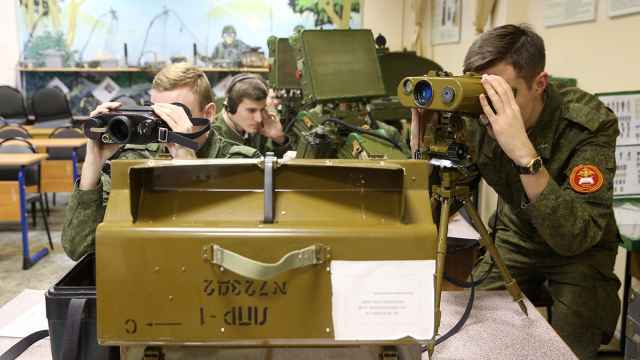
Alexey Volov
General Manager
Hotel Best Western Premier MONA
In the hotel business it is a far more complicated task to secure consistent guest service — I call this software — than to build and equip a beautiful hotel building (hardware). There are three major reasons for poor or inconsistent service in hotels:
1. Lack of or inefficient standard operating procedures (SOP) when employees do not really understand how to provide great service to guests
2. Lack of skillful and motivated staff or lack of on-going service trainings
3. Lack of control procedures
1. Reviewing SOP
To significantly improve quality work in the above areas, hotel management should concentrate its resources in the following vulnerable areas where guest service really matters:
Guest arrival (Front office)
Guest room cleaning (Housekeeping)
Breakfast (Food & beverage)
Guests' communication in the hotel (all departments)
Let me explain using the examples of arrival and room cleaning how standard operating procedures can impact guest satisfaction when reviewed carefully.
Guest arrival / departure. A few questions to consider: Who meets your guest first? Reception? Or a security officer? Or a driver in the airport? How much time does the average check-in procedure take? If it takes more than 2 minutes, you are in a red zone, since for the guest it is only about taking his room key. Do you have queues at the reception? Do you have a practice for managing them? Is your reception efficiently staffed depending on the hotel occupancy? What mood are your guests in when they leave the hotel after paying their bills? Do you part on a positive note?
Review your SOP for the arrival / departure to cut the check-in procedure to a minimum: Make sure reservations data is correct, guest rooms are assigned in advance to today's arrival list, room keys are ready before arriving hours. During check-in, make sure you provide only the most important information to guests; long speeches is the last thing guests want to hear after a long trip. Finally, reception staff should be ready to spot a queue and immediately ask for help from the back office.
Guest room cleaning. At most hotels, room attendants follow a clear step-by-step process of making rooms, but how can the results be so different then? It depends on the quality check by supervisors — those who follow maids and verify that rooms are in order. At most hotels, supervisors check 25-30 or more rooms per shift, which leaves them less than 5 minutes per room and almost guaranteed poor quality check by the end of the day. With that in mind, I do not think we can seriously talk about high-quality room maintenance here.
To achieve a top quality result, an average guest room, depending on the hotel category, should be checked on between 70 and 100 points within 8-10 room zones. This makes the time spent on each room for a supervisor longer — at least 15-20 minutes. To make up for it, however, they may check only 2-3 rooms per room attendant per shift chosen on a random basis. In fact, this becomes a much deeper dive check that guarantees an excellent result. Supervisors should mark every point loss on a special sheet for each room attendant; this allows them to identify weak zones and assign respective trainings.
2. Working with the team
You can have the most efficient SOP, but if your team does not understand how to use them or if they do it inconsistently, there will be no result. Corporate service culture, when every employee understands and respects the role of the guest in the hotel, is crucial, but staff trainings and motivational programs are equally important. The secret is that both should be directly linked to the results of following the SOPs. Let us take the example of a supervisor's check on the room attendant's job. The point-losses in individual check-lists by a room attendant collected by the end of the month can be put together, and it becomes absolutely clear where exactly this particular room attendant requires training to improve her/his skills. There is a similar approach to motivation — every point can have a certain currency value. The loss of a point automatically means less incentive paid at the end of the month.
3. Stay tuned
People are people and even the most motivated and dedicated team may from time to time slip in quality standards. To avoid this, hotel management should have a monitoring system in place. I recommend multi-level control, when a supervisor checks 2 rooms per attendant per day, a housekeeping manager checks 2 rooms that have already been checked by supervisors on a random basis daily, rooms division manager or even general manager check 2 rooms per week. It will be interesting to compare the results; if they vary considerably, something is not working and needs to be addressed.
Finally a great way to control the service quality is to analyze and react to guests feedback left in the hotel's / company's own survey or web-based tools (Tripadvisor.com), but to avoid negative comments here the hotel should first think on following and utilising the above described three steps.
A Message from The Moscow Times:
Dear readers,
We are facing unprecedented challenges. Russia's Prosecutor General's Office has designated The Moscow Times as an "undesirable" organization, criminalizing our work and putting our staff at risk of prosecution. This follows our earlier unjust labeling as a "foreign agent."
These actions are direct attempts to silence independent journalism in Russia. The authorities claim our work "discredits the decisions of the Russian leadership." We see things differently: we strive to provide accurate, unbiased reporting on Russia.
We, the journalists of The Moscow Times, refuse to be silenced. But to continue our work, we need your help.
Your support, no matter how small, makes a world of difference. If you can, please support us monthly starting from just $2. It's quick to set up, and every contribution makes a significant impact.
By supporting The Moscow Times, you're defending open, independent journalism in the face of repression. Thank you for standing with us.
Remind me later.





